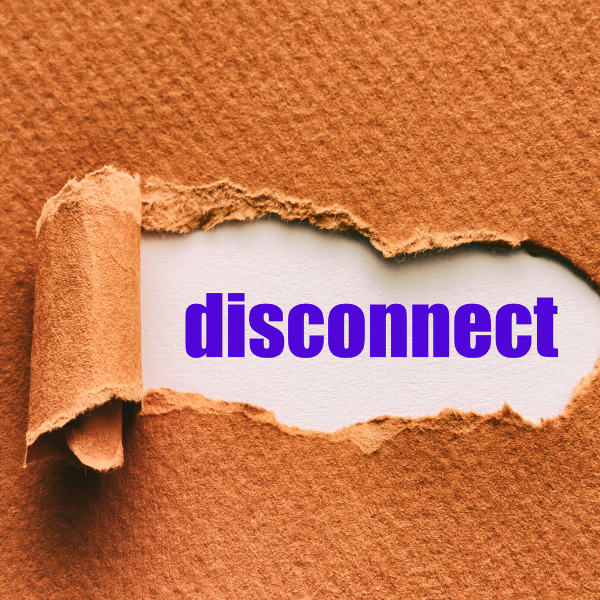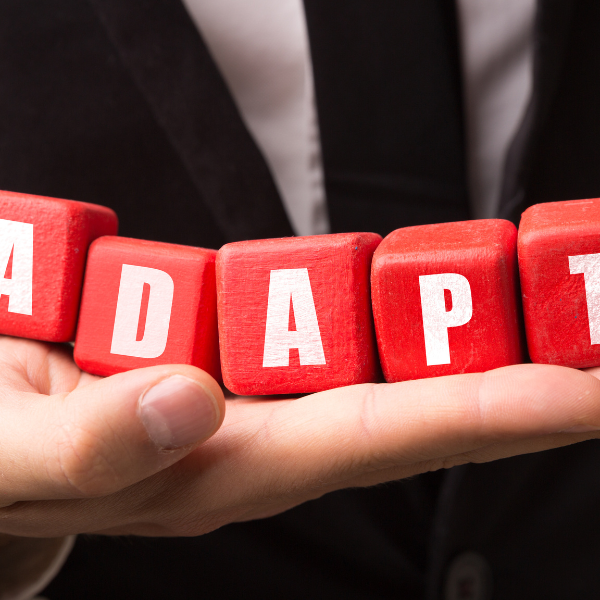All Things Admin Joins ASAP. Learn More ›
How to Set Boundaries
April 16, 2024

Do you struggle with work-life balance? Executive and personal assistant Ike Saunders shares how to delineate boundaries and thrive in a role that blends the personal and professional.
Recorded at EA Ignite Fall 2023 and produced by the American Society of Administrative Professionals - ASAP. Learn more and submit a listener question at asaporg.com/podcast.
Download this episode for later and make sure to leave us a 5-star review on Spotify and Apple Podcasts!
Transcript
Leah Warwick: Hi, everyone. I'm Leah Warwick, and you're listening to "The Admin Edge." This episode was recorded at EA Ignite Fall 2023 in Austin, Texas, with guest Ike Saunders, on the importance of boundaries, which he also spoke about at this conference. We discussed this and the perspective Ike brings in a blended executive and personal assistant role. Here's Ike.
Ike Saunders: I've been in my position as an executive and personal assistant for Chris Kennedy and his wife Sheila Kennedy in Chicago for 14 years. I started working for him when he was running the Merchandise Mart, and, after he retired from that position in 2011, I stayed with him in his different careers. Right now, he's doing some real estate development, but I support him and his family both personally and professionally.
00:00:59
I think it's easy for somebody who's working in a blended role of an executive and personal assistant to get caught up in forgetting where they need to draw boundaries to ensure that they're maintaining their own self-identity and to make sure that they're providing enough safety for themselves—both from their work, which can be incredibly demanding, and from being enmeshed in the role of being a personal assistant. It's also important to the executives whom that person is supporting to make sure that the assistant is keeping a proper distance to do their job well—to protect themselves emotionally and mentally, to ensure that they're being productive at work and not getting too blended with their executive.
00:01:48
Boundaries are not impositions upon other people's behavior. What's really important when you're understanding boundaries and identifying your boundaries is to know that it is the extent to which you're going to engage, and when you're going to stop engaging. Boundaries are, importantly, about things you can control, and when you are a participant in a discussion, in an emotional situation and mental engagement, it's not about telling other people that they can or can't do things. It's saying, "If this thing happens, I will choose, of my own volition, to engage or disengage." Setting boundaries is really about getting in tune with yourself and being aware of the emotional experience you're having in that moment.
It's a little unique for me, having worked for the family for more than a dozen years. I work in their homes. Sometimes I'm invited to some of their family events, because I've got good relationships with family. It's important to have a warmth and a personability in those settings that is not coldly business-like, so I have to be approachable and trusting and calm.
00:03:05
I think my personality lends itself to being that sort of person, even professionally. I am somewhat casual by a lot of standards, and I think Chris is incredibly professional, but incredibly warm and very easy to talk to. I attempt to mirror that 1) because that's what I'm presenting for them both personally and professionally, but 2) that's, thankfully, also the type of person I am.
Finding a way to leave work at work has been super important to me. I think having a clear, bright line of the information and energy and stress that I take home from work has to end at a certain point. Chris and Sheila, I think, also have times when they need me not to be in their house, and they're done working on projects together and they want to be with their family.
00:03:57
Being mindful of those boundaries, I think, has been the hardest thing to figure out, but the most important and most rewarding thing to navigate.
Leah Warwick: I'm sure you've met some executive assistants here, and I heard one in the room even say, "I'm interested in being a personal assistant." What do you think—and this is a generalization, of course; EAs are all different—is something that might need to become a skill or something that an EA who's only worked in the workplace and not in the personal sphere might need to pick up or adjust to?
Ike Saunders: I think having a very strong sense of self, a very high emotional intelligence, and a willingness to accept that the world in your executive's personal life most likely operates incredibly different from their professional life and incredibly different from your own upbringing.
00:04:58
You need to go into that space understanding what your role is as a personal assistant, and that is going to come with a type of stress and expectations and family dynamics, and a lot of intimate personal work sometimes, with your executive and their family and their kids and their parents, that you need to be prepared for. It's such a different type of role, and it's not for everybody. You need to not have an expectation that you know what's right, I think, going into it. You need to be adaptable in a way that I don't think an EA job necessarily will demand. I'm glad that I do it, and I could never imagine not doing both, but I don't think everybody's cut out for it.
00:05:59
Conversely, somebody who's supporting somebody like Beyoncé or Taylor Swift needs to be able to travel and probably be on 24/7, and that's not something I could do for them, but I would never assume that I could fill the shoes of a person who has that type of job. Compensation in a job is not only money; it's certainly the person for whom you're working and the sort of work that they do, and the fulfillment you're getting in and out of the office.
Leah Warwick: Thank you for listening to "The Admin Edge," produced by the American Society of Administrative Professionals. Original music and audio editing by Warwick Productions. If you liked this podcast, please leave us a five-star review wherever you listen to podcasts, and subscribe. If you want to send a listener question, you can submit via the form on our website at asaporg.com/podcast.












